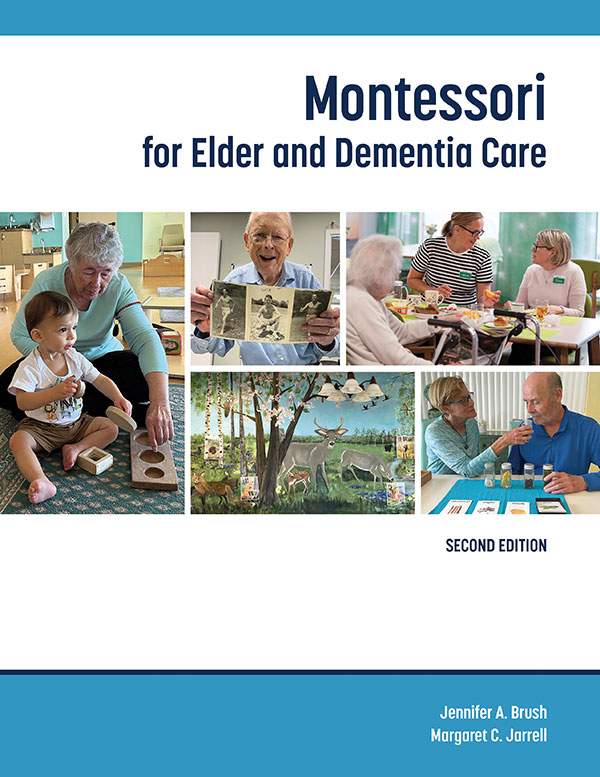Exactly How to Provide Significant and Customized Dementia Treatment
The provision of tailored and meaningful dementia care needs a nuanced understanding of each individual's distinct history and preferences. Care techniques need to be customized to involve the person in ways that resonate with their past experiences, thereby cultivating psychological connections and enhancing overall health.
Comprehending Dementia Uniqueness

Care providers must examine cognitive capacities, emotional states, and behavior patterns to produce customized care strategies. This may consist of adapting communication designs, utilizing familiar regimens, and using meaningful tasks that resonate with the individual's previous experiences. Involving an individual with a passion for music through music tasks may stimulate positive memories and enhance emotional wellness.
Additionally, understanding originality fosters a caring strategy that values the dignity and autonomy of those dealing with mental deterioration. It encourages caretakers to pay attention actively, observe behavior hints, and continue to be flexible in their caregiving techniques (memory care facility charlotte). By focusing on originality, caretakers can not just boost the quality of life for those with dementia however also build a more profound understanding of their unique perspectives, eventually resulting in much more reliable and compassionate treatment
Structure Count On and Connection
Establishing trust fund and rapport is essential in dementia care, as it develops a encouraging and risk-free environment for individuals affected by the problem. Building these connections needs consistent, compassionate interactions that focus on the requirements and feelings of the person. Caregivers need to approach interactions with compassion, identifying the special challenges faced by those with dementia, consisting of memory loss, confusion, and psychological distress.
Reliable interaction is crucial in this process. Caretakers should utilize clear, easy language and non-verbal signs to convey understanding and support. Energetic listening shows regard and recognition, allowing individuals to reveal themselves without anxiety of judgment. Additionally, maintaining a tranquil temperament can aid reduce anxiousness, cultivating a complacency.
Establishing a routine can additionally boost depend on. Knowledge with day-to-day tasks and caretakers advertises a feeling of security, allowing people to really feel even more secure. It is important to engage with people on an individual level, putting in the time to find out about their biography, preferences, and rate of interests. By doing so, caregivers reinforce the person's identification, promoting dignity and regard, eventually causing stronger, extra significant connections in the context of dementia care.
Tailoring Tasks and Involvement
Engaging people with mental deterioration through tailored tasks can substantially enhance their quality of life and promote a deeper link between caregivers and those in their treatment. Customization is necessary, as it recognizes the special histories, rate of interests, and abilities of each person. Activities need to be created to promote cognitive functions, advertise physical movement, and encourage social communication, all while continuing to be pleasurable and meeting.
To tailor tasks effectively, it is important to assess the individual's choices and cognitive capacities. Some might locate happiness in gardening, while others may appreciate music or art. Simple, familiar jobs can stimulate positive memories and supply a feeling of achievement. Furthermore, incorporating aspects of routine can offer convenience and security, permitting individuals to engage with activities more with confidence.
Caretakers can enhance interaction by participating together with the individuals, cultivating an interactive and helpful site link atmosphere. It is also crucial to continue to be versatile and flexible, adjusting tasks as required based upon the person's power degrees and state of mind. Eventually, meaningful involvement with tailored activities not just uplifts people with dementia however see this site likewise improves the caregiver partnership, promoting common enjoyment and understanding.
Effective Communication Methods
Reliable communication is vital in dementia care, as it cultivates a feeling of link and understanding in between caretakers and people experiencing cognitive decrease. Utilizing reliable communication strategies can significantly enhance the top quality of communications and decrease aggravation for both parties.
To start with, utilizing easy, clear language is essential. Brief sentences and acquainted words help people understand and respond much better. In addition, maintaining a tranquility and favorable tone can produce an encouraging setting, which is vital for people who might feel distressed or baffled.
Non-verbal interaction plays a considerable duty. Caretakers must pay interest to body movement, face expressions, and gestures, as these signs can commonly convey greater than words - dementia care charlotte. Developing eye contact and using gentle touch can likewise reinforce connections and communicate compassion
Energetic listening is an additional crucial part. Caretakers must be attentive, allowing individuals to reveal themselves fully, even if their speech is uncertain or fragmented. This lionizes and encourages much more open communication.
Lastly, verifying experiences and feelings is vital. Acknowledging emotions, no matter their basis in reality, can offer comfort and reinforce the caregiver-individual connection, advertising an extra encouraging atmosphere.
Sustaining Family Involvement
Family members participation plays a considerable duty in the overall care and assistance of individuals with dementia. Involving member of the family creates a collaborative atmosphere that improves the quality of treatment, fosters psychological links, and makes certain that the special requirements of the individual are met. Member of the family commonly possess important insights right read the article into the person's history, choices, and behaviors, which can be vital in establishing personalized treatment techniques.

Additionally, member of the family can be urged to take part in daily care tasks, such as involving in purposeful conversations or helping with acquainted routines. This not only helps receive the person's feeling of identity but also enhances domestic bonds. Inevitably, by promoting an inclusive method that values family contributions, treatment carriers can boost the total experience for both people with mental deterioration and their enjoyed ones.
Final Thought
In verdict, supplying customized and meaningful dementia care requires a comprehensive understanding of each person's special background and preferences. Establishing trust and relationship through caring interactions is essential for producing a secure environment. Tailoring tasks to reverberate with personal rate of interests boosts emotional well-being and promotes self-respect. Effective communication strategies better sustain this process, while actively including relative enriches the caregiving experience and fosters deeper connections. Collectively, these techniques add to enhanced quality of life for individuals with dementia.
The stipulation of purposeful and tailored dementia treatment calls for a nuanced understanding of each person's special history and choices. By doing so, caregivers enhance the person's identity, promoting self-respect and respect, eventually leading to stronger, a lot more meaningful partnerships in the context of dementia care.
Engaging individuals with mental deterioration with customized activities can considerably boost their top quality of life and cultivate a deeper connection between caretakers and those in their care.Household participation plays a considerable duty in the general treatment and support of individuals with mental deterioration. Inevitably, by fostering an inclusive strategy that values family contributions, care providers can improve the total experience for both people with dementia and their loved ones.